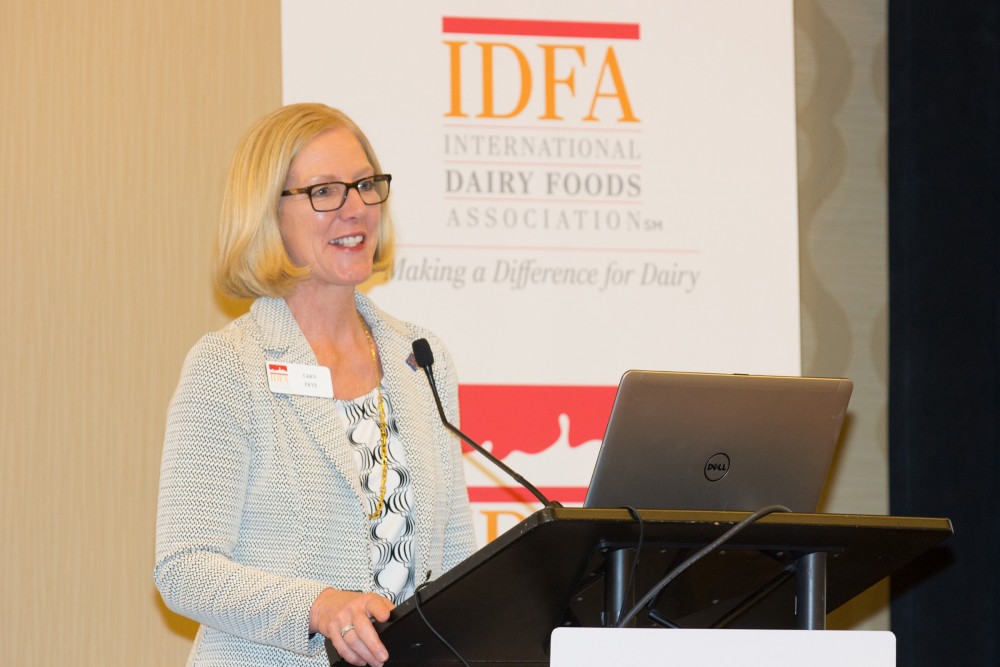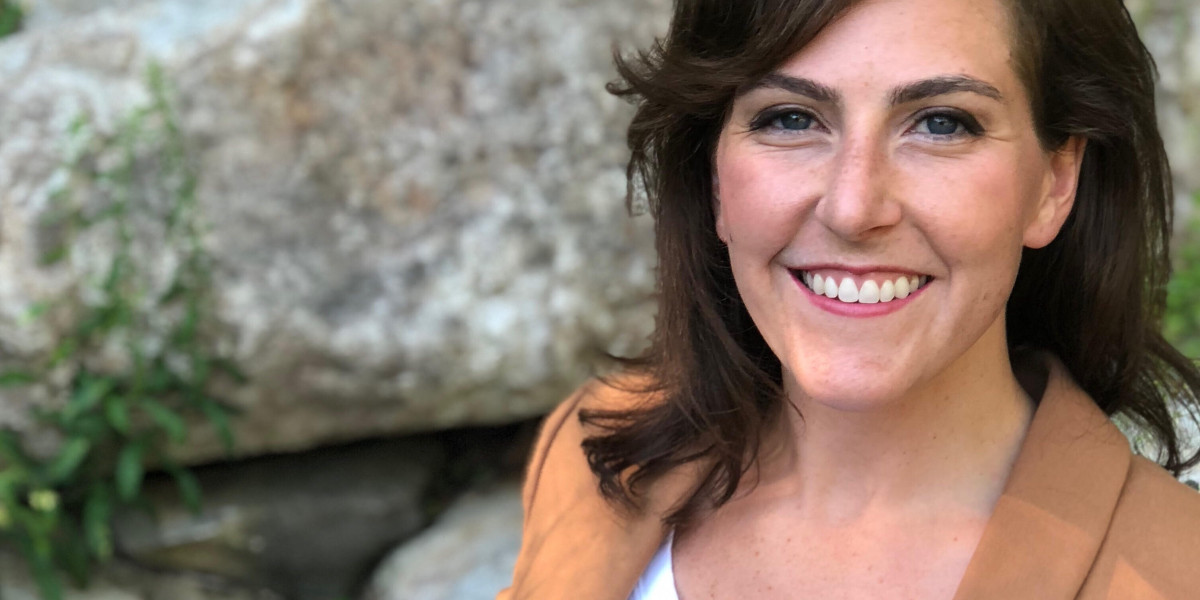By Sarah Tuff Dunn
When Cary Frye turned sweet 16, she got her own horse—but it was hardly a gift horse she looked in the mouth. To earn the “beautiful but unsuccessful thoroughbred” named Montego Bay, the teenager had worked hard mucking out stalls at a stable near her Concord, Massachusetts, home. “From a young age I had a love for all types of animals—cats, dogs, wounded birds, and especially horses,” recalls Frye, now a resident of Fairfax, Virginia, and the vice president of Regulatory and Scientific Affairs for the International Dairy Foods Association.
The Washington, D.C.–based trade association represents a $125-billion-a-year industry and has more than 550 member companies, which requires Frye to wear many hats (including a hairnet) as she ensures food safety and promotes good nutrition globally. That means the only spoiling that comes from Frye and her husband, Gary (whom she met checking plant sanitation at Crowley Foods 28 years ago), comes from doling out ice cream to their two daughters and seven grandchildren.
![]() Though we didn’t saddle up, we sidled up to Frye for her insights on international connections and staying at the forefront of good communication skills.
Though we didn’t saddle up, we sidled up to Frye for her insights on international connections and staying at the forefront of good communication skills.
How did you become interested in animal science and dairy technology?
I had dreams of being a veterinarian but quickly realized how fiercely competitive it would be to get into vet school. So I chose animal science at UVM, and thinking that I would be a dairy farmer, I became fascinated with the analytical precision of chemical testing and daily discovery of microbial testing done under the microscope and with cultural methods to confirm quality parameters.
You worked at Hood’s cottage cheese-processing operation in Maine after you graduated in 1982. What was that like?
It allowed me build upon my dairy laboratory skills—I worked with newly installed processing and packaging equipment for individual-sized packages, and new cottage cheese flavors like strawberry and garden vegetable. Early on, I recognized that a successful quality program needed to involve, train, and empower all employees to work as a team together to create culture of quality.
I learned why the regulations and controls are critical for the pasteurization equipment system and at each step of the cheese-making process. I also quickly became aware of the importance of spending time to carefully learn the details of each of the jobs of the people you work with and supervise them to gain their credibility by hard work and knowledge.
Your work with the International Dairy Federation has taken you around the world. What are some highlights?
 Meetings have taken me recently to Vilnius, Lithuania; Rome, Italy; and past trips to New Zealand, Australia, Argentina, Japan, China, Belgium, and many European countries. I always try to take time to explore the food and culture, visit a dairy farm or factory, and taste some of the local specialty products. Some unusual dairy products that I enjoyed were aloe vera yogurt in Japan and glaistytas varškės sūrelis—glazed cheese curd—in Lithuania, which can be best described as chocolate-coated cheesecake bars.
Meetings have taken me recently to Vilnius, Lithuania; Rome, Italy; and past trips to New Zealand, Australia, Argentina, Japan, China, Belgium, and many European countries. I always try to take time to explore the food and culture, visit a dairy farm or factory, and taste some of the local specialty products. Some unusual dairy products that I enjoyed were aloe vera yogurt in Japan and glaistytas varškės sūrelis—glazed cheese curd—in Lithuania, which can be best described as chocolate-coated cheesecake bars.
What do you find fascinating about the dairy industry?
The complexity. Most people don’t realize what it takes to bring the milk gallon they grab at the store or the yogurt parfait ordered at a fast-food restaurant. I’m in wonder of how each step of the dairy industry is interconnected. From the dairy farmer’s daughter feeding the calves before school, to the milk plant operator assuring the safety of the time and temperature for pasteurization equipment, to the laboratory technician testing each batch of ice cream for milk fat, texture, proper fill, and microbial safety, all play a connected role in delivering safe and nutritious dairy products.
What are your favorite kinds of cheeses and flavors of ice cream–any from Vermont?
My refrigerator drawers are filled with more than 10 pounds of different cheeses. One of my favorite snacks is an apple with Seriously Sharp Cabot Cheddar Cheese. It’s also exciting to see what’s trending in ice cream flavors related to combinations of bakery flavors like German chocolate cake and liquors like limoncello gelato and even beer. I just tried Ben & Jerry’s Salted Caramel Brownie Ale ice cream made with New Belgium Brown Ale, salted caramel swirls, and chunks of fudge brownie, which was dangerously delicious.
What advice would you give on pursuing a career that encompasses so many companies and so many billions of dollars?
Work hard, don’t be afraid to pitch in, do any job that is needed, and offer to take on more responsibility and new projects. Get noticed and share your ideas with coworkers, supervisor, and even the CEO if you have a chance, but be sure to give credit to others for their ideas and roles. Learn how to be a good communicator, even if you feel your strengths are in the field of science. And I urge you to gain confidence in both public speaking and writing. You need to tell your story and share your knowledge and expertise with others.
And what about making international connections?
Join an international organization related to your field of work or even your nonwork interests, such as a hobby or charity. Get involved in the organization’s committees and try to attend their events or meetings. Although being fluent in other languages is helpful, it’s not necessary, as many international meetings and symposiums offer translation in English and other languages. If you travel internationally, even for pleasure, seek out opportunities to meet others in your field of work by asking if you can visit their company. Keep in touch with work colleagues and friends you meet in other countries via email, sharing information of interest to your work or just saying hello.
-Sarah Tuff Dunn is a freelance writer living in Shelburne.




